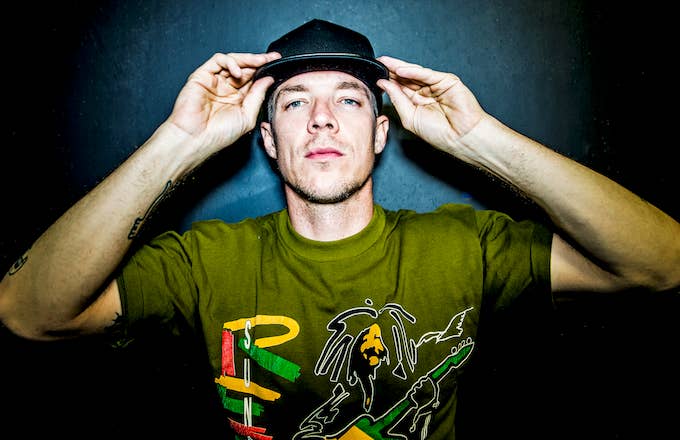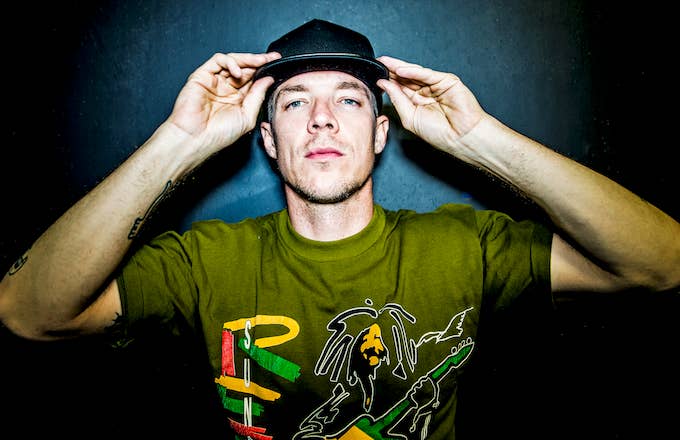
Whatever you may think of Diplo, Taylor Swift lookalike and Kim Kardashian impersonator, and also a quite famous DJ, you have to admit that the man knows how to make earworms. You might agree with Rihanna that his music sounds like “reggae song[s] at an airport,” but nevertheless, most of the singles he touches go on to become massive hits, sticking in everyone’s heads forever (see: “Get It Right” and “Lean On,” both featuring MØ, and “Where Are U Now” with Skrillex and Justin Bieber).
But with great fame comes great criticism, and one of the strongest arguments against the 39-year-old, Florida-born Diplo is the ever-so-spicy claim of cultural appropriation. Diplo has taken inspiration from a variety of music genres, from Brazil’s funk to raggaeton to dancehall and beyond. His work on “Lean On,” particularly the music video, was seen as appropriating Indian culture, for example. His work with Major Lazer in particular, which is heavily influenced by dancehall, has come under attack several times. In a new interview with The Guardian, Diplo has once again addressed those criticisms, this time in a pretty blunt way.
To be fair, the interviewer threw a smoke bomb at him with a pretty difficult question: “At what point is being influenced by something celebratory, and at what point is it cultural pickpocketing?“
“I might be too tired to answer that in a good way,” Diplo answered. “I don’t...really...fucking care. What kind of music am I supposed to make?”
“Being a white American, you have zero cultural capital, unless you’re doing Appalachian fiddle music or something. I’m just a product of my environment,” he said. “I’m sure the Clash never had people mad at them for co-opting [black music].”
Diplo has put on concerts all over the world, including Islamabad, Pakistan, and Uganda. He often gets inspiration during these trips; on a recent one, he signed Nigerian singer-songwriter Mr. Eazi.
“When I go out [to] somewhere like Africa, it’s not a business to me,” he says. “I think to myself: ‘This place is changing rapidly. How can we help build it?’”
When it comes to Mr. Eazi, for example, Diplo just “[hopes] someone in America will hear him and then make different music.”
“When it comes to making music, understand that my intentions are always great. I’m there for the music only,” he continued. “I have a lot of privilege by being a middle-class white American. So if I had to trade that by being considered exploitative, and people always saying negative things about me...it’s a small price to pay.”
At the end of the day, even though Diplo can boast some serious popularity, streaming numbers, and spots on the charts, he insists that it’s not about the “data” for him. Instead, he wants to “find places people aren’t at. Like, if reggae’s the uncoolest music ever, I’ll try to make a reggae album,” he says.
“A lot of the big producers, their lifestyle is based on them having a hit record every year. I DJ, so I make my money elsewhere; I can make flops and keep touring,” he added.
“In 2018, you can make as many missteps as possible,” he also said. “Nobody remembers the bad music you made. Justin Bieber is a good example: People just remember that he made a great album in Purpose.”
While Diplo might be right about people’s memories of bad music nowadays, the general trend seems to be heading toward assessing cultural appropriation in a more head-on way in order to make room for more celebration of cultures and holding those who abuse their platforms accountable. But hey, who am I to dictate what Diplo should do?
You can read the rest of Diplo’s interview with The Guardian on their website.

